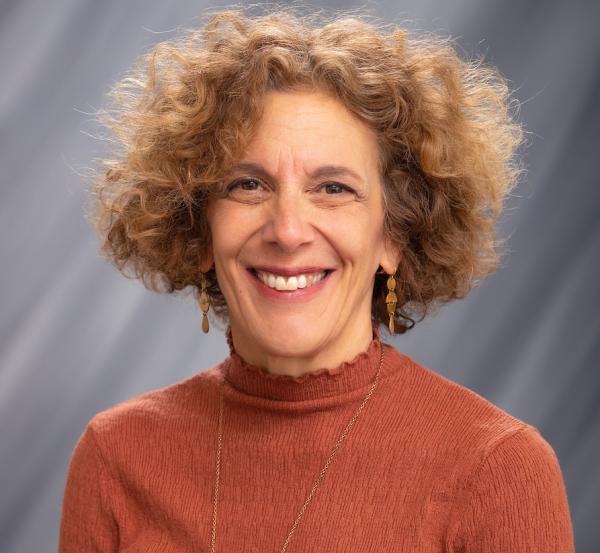Tagged: “Children”
Forgiveness Education Is Peace Education
A 10-week forgiveness education curriculum can be an important component of peace education for students according to a newly published study by Dr. Suzanne Freedman, a Professor of Educational Psychology at the University of Northern Iowa.

Dr. Suzanne Freedman, Professor, Co-chair of the College of Education Diversity, Equity & Inclusion Committee, University of Northern Iowa.
Dr. Freedman, a long-time research associate of International Forgiveness Institute co-founder Dr. Robert Enright, conducted the project with three classes of fifth graders. The resulting study was published in the April issue of Peace and Conflict: Journal of Peace Psychology, an American Psychology Association (APA) publication.
The forgiveness education curriculum used for the project was jointly developed by Drs. Freedman and Enright and employed the Process Model of Forgiveness developed by Dr. Enright. The project incorporated Social-Emotional Learning (SEL) approaches that taught students healthy ways to express anger and other feelings, understand the perspective of others, and practice empathy and kindness.
This article illustrates how forgiveness education can be infused into the curriculum and the importance and benefits of doing so. Readers will learn more about forgiveness as well as how promoting forgiveness as a virtue to students can reward the forgiver, the forgiven, and society at large.
Dr. Suzanne Freedman
“Results from this study illustrate that a 10-week forgiveness education curriculum can be an important component of peace education for fifth grade students,” according to the published report. “Students showed increased forgiveness toward a specific offender and increased knowledge about forgiveness after receiving the education, and students’ verbal reports illustrate that they enjoyed and benefited from this specific curriculum using children’s literature.”
Learn more:
Read the full study – “Forgiveness education as a form of peace education with fifth-grade students: A pilot study with implications for educators.”
The Value of Forgiveness – An article outlining the benefits of forgiveness and the forgiveness education work of Dr. Suzanne Freedman at the University of Northern Iowa.
It’s Okay to Not Be Okay – A guest blog by Dr. Freedman on the importance of helping teens understand the role forgiveness plays in their psychological health.
Greater Good in Education Promotes Forgiveness/Character Education – An internationally-acclaimed organization has created an entire “best practices” forgiveness component for educators based on Dr. Freedman’s 5th grade curriculum guide.
The Psychology of Interpersonal Forgiveness – In this article written for SEL in Action, a publication for educators, Dr. Freedman debunks several misconceptions about forgiveness.
I am interested in helping my children learn about forgiveness and learn to forgive. Yet, I am worried that this might force them into forgiving and therefore turn them away from it. What advice do you have for me on this important issue?
A key is to try fostering softened hearts in the children toward other people. You can keep their little hearts soft by talking about forgiveness with them. Do not force this upon them. Let them be drawn to it because forgiveness in its highest form is an expression of love. Let them see this love, experience it, and then offer it when they are ready. You can use teachable moments on forgiveness in the home, such as when there are conflicts between the children. You can point out forgiveness themes in stories and films as other teachable moments. Let them see and experience forgiveness so that they, themselves, begin to see the beauty and importance of forgiveness.
A colleague said to me that it is child abuse to impose the education of forgiveness on unsuspecting students. How would you answer such a charge?
Good philosophy is the pursuit of wisdom. Good education is the same. Part of being wise is to know how to control one’s anger, to reduce resentment, and to forge healthy relationships in the home and in the community. Forgiveness, seen in scientific studies, is one effective way of reducing resentment and fostering better behavior and relationships. If we then deprive a child of this part of wisdom, are we somehow aiding that child’s development or stifling it? Teaching about forgiveness is far from child abuse. Deliberately withholding knowledge of forgiveness is educational deprivation, which should happen to no child.
How can we get parents interested in teaching their children about forgiveness?
Parents first need to understand that deep-seated resentment can build up in children’s hearts when they are treated unfairly. They need a way of curing that resentment and forgiveness is one vital way to do that. We need to get the word out to parents that forgiveness is a protection of the child’s heart that can be appropriated for the rest of that child’s life, even into adulthood when the storms of life can get more severe.
How do I correct a child who equates forgiving with revenge? The thought in this child, age 6, is that if he can get back at the other person, then they can move on together.
A key issue is to begin talking with the child about how all people are special, unique, and irreplaceable. All people have built-in worth. As Horton the elephant says in the Dr. Seuss classic, Horton Hears a Who, “A person’s a person no matter how small.” Try to get the child to see this and to see that the proper response to other people is kindness. Getting back at someone who behaved badly is not kindness and so this cannot possibly be forgiveness. It is important also to bring in the issue of justice. If a child is being bullied by another, for example, the one who might forgive needs to seek justice by telling an adult about the unfair situation.



